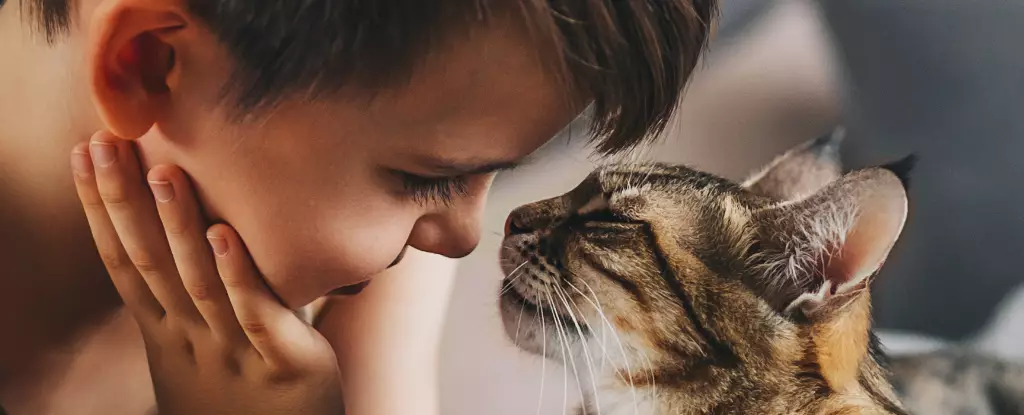Cats have been companions to humans for millennia, sharing our homes and our lives. They have seamlessly integrated into our culture, inspiring memes and viral videos alike. Yet, beyond their cute faces and quirky behaviors, they play a significant role in our physical and mental health. However, like any relationship, the bond with our feline friends can be complex, revealing both benefits and drawbacks.
Research has illuminated the deep emotional connections many people form with their cats. Unlike other pets, cats seem to evoke strong familial bonds in their owners. A significant study involving 1,800 Dutch cat owners indicated that nearly half regarded their feline companions as members of the family. One-third classified their cats as children or best friends. This sentiment extends across cultures and demographics, demonstrating that cats may possess an uncanny ability to provide emotional support and companionship.
Furthermore, studies suggest that cats can recognize their owners and interact with them in ways that affirm this bond. For instance, cats often respond to their owners with a unique meow that appears to stimulate our nurturing instincts. This adaptive communication strategy not only enhances the owner-pet relationship but also underscores the complex dynamics of interspecies interactions. Thus, owning a cat can foster a sense of belonging and reduce feelings of loneliness, providing emotional sustenance amid societal isolation.
The health benefits of cat ownership extend beyond emotional well-being. Multiple studies associate pet ownership with reduced risks of serious medical conditions, especially cardiovascular diseases, including heart disease and stroke. However, it’s critical to acknowledge that these studies often show correlation rather than causation. This means while cat owners tend to exhibit lower instances of such diseases, we cannot definitively conclude that owning a cat directly contributes to these health outcomes.
Moreover, there are indications that cats may influence our gut microbiota positively, leading to improvements in blood glucose control and reductions in inflammation. Such benefits tend to be particularly notable among women, underscoring the multifaceted impacts of pet ownership on health. However, while these findings are promising, they raise questions about how various relationship styles between humans and their cats may shape health outcomes.
The Complications of Cat Companionship
Despite these benefits, the relationship with cats can be fraught with challenges. The study of different human-cat relationship styles—ranging from distant to co-dependent—reveals that those with a more intense emotional connection to their cats may depend on them for emotional support. However, reliance on a pet for comfort can be a double-edged sword. A study focused on veterans indicated that while many found solace in their pets, those who exhibited deeper attachment also had higher rates of reported mental health struggles, suggesting that the need for comfort may stem from underlying issues rather than being solely a product of the pet’s companionship.
On the downside, the burden of care can weigh heavily on pet owners, especially when health issues arise. A study of cat owners caring for pets with conditions like epilepsy revealed significant caregiver stresses that could disrupt their daily lives. The emotional strain of a pet’s illness can lead to an increase in mental health challenges, warranting a more nuanced understanding of the complexities involved in cat ownership.
Health Risks Associated with Cats
A critical aspect of cat ownership that often gets overlooked is the potential health risks involved. Cats are known to carry zoonotic diseases, which can transfer from animals to humans. Toxoplasmosis, for instance, is primarily transmitted through cat feces and can have severe implications, especially for pregnant women and immunocompromised individuals. Thus, it’s essential for cat owners to practice proper hygiene, such as daily litter box cleaning and hand washing, to minimize these risks.
Additionally, allergy to cats is a growing concern. Up to 20% of the population may exhibit cat allergies, triggered by saliva and dander. While this can pose a challenge, some studies suggest an exposure to cats may actually lower the risk of developing asthma and allergy-related issues later in life. This represents a complex interaction between individual immune responses and environmental factors.
The companionship of cats comes with a rich tapestry of emotional fulfillment, potential health benefits, and inherent risks. Understanding this complex relationship can help owners cultivate a healthier environment for themselves and their pets. While the joy of cat companionship is undeniable, it is equally vital to acknowledge and navigate the potential challenges. As we celebrate our feline friends, let us also remain mindful of the dual nature of this bond—one that enriches our lives yet calls for careful consideration.


Leave a Reply